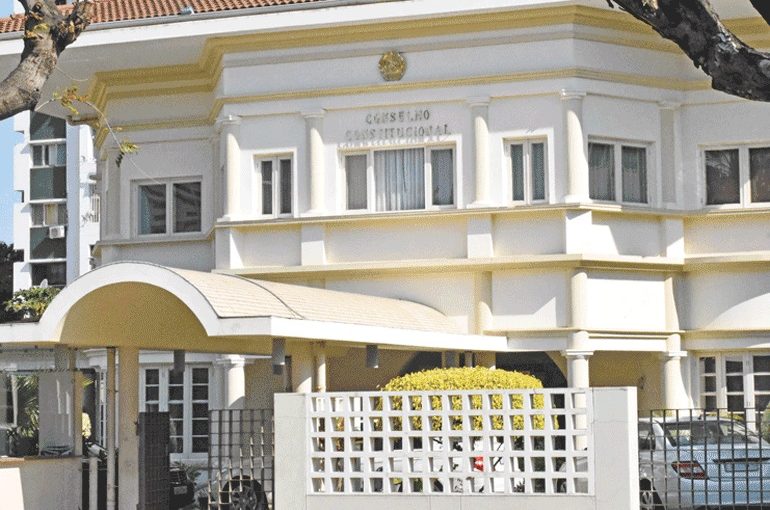Mozambican sports minister to take part in sports forum in Samara, Russia
Mozambique elections: Constitutional Council rebukes Beira court, but rejects Renamo appeal – AIM

File photo: O País
The Constitutional Council, Mozambique’s highest body in matters of constitutional and electoral law, has rebuked the Beira City Court for mishandling an election appeal by the main opposition party, Renamo, but also found no merit in the Renamo arguments.
When Renamo went to the City Court to protest against the Beira results, the court threw the Renamo appeal out, on the grounds that it had arrived too late. The elections were on 15 October, and there is a deadline of 48 hours to submit appeals to district or city courts. The deadline thus expired on 17 October.
But Renamo was not appealing against the results in any particular polling station, but against the tabulation of the city-wide Beira results on 18 October. The appeal reached the court at 15.30 on 20 October and so was not late, and should have been considered.
Thus the City Court’s dispatch is null and void. Under normal circumstances, the case should go back to the City Court for reconsideration – but the Constitutional Council argued that the tight timetable for election results “is not compatible with repetition of judgements”, and so the Council would deal with the matter itself.
The core of the Renamo complaint is the discrepancy between the number of votes cast in Beira in the presidential, parliamentary and provincial elections. Renamo argued that, since each voter is given three ballot papers, one for each election, the number of votes cast should be the same in the three elections.
The Constitutional Council asked for an explanation from the National Elections Commission (CNE), which replied that the three elections are separate, and the count of the votes is separate at each polling station.
The CNE said the voters are free to vote, or not to vote, in each of the elections – so a voter might decide not to use all three of the ballot papers he received.
Furthermore, during the count mathematical errors could creep in, leading to discrepancies in the number of voters in the three elections, particularly given the fatigue of polling station members of staff.
The CNE added that the district and city elections commissions can correct mistakes in addition, but they cannot correct discrepancies in the numbers of voters for the three elections. (The CNE is wrong – the local commissions could call for a recount, but nobody has ever done that in Mozambican elections).
These discrepancies have been noted in previous elections, and are hard to explain innocently, since no observers have ever noticed voters dropping ballot papers into one ballot box and not another.
But in Beira the discrepancies Renamo complained of are very small. 171,098 votes were cast in the presidential election, 171,122 in the provincial election, and 170,607 in the parliamentary election.
So 615 people supposedly voted in the provincial but not the parliamentary election, 124 more people voted in the provincial than in the presidential election, and there were 491 more votes cast for the president than for parliament.
615 is 0.35 per cent of the total votes cast in the provincial elections, and 491 is 0.28 per cent of the votes cast in the presidential election. It is surprising that Renamo bothered with such small discrepancies which could make no significant difference to the overall results in Beira.
The Constitutional Council rejected the Renamo appeal – but noted that it contained matters that ought to go before the public prosecutor.
Renamo had mentioned such crimes as ballot box stuffing, deliberate invalidation of votes and the intimidation of voters. These are not administrative matters that can be dealt with by an appeal to a district court or to the Constitutional Council, but are crimes that should be investigated by the Public Prosecutor’s Office.
The city court had failed to act on this, so the Council ordered that these issues be submitted to the Public Prosecutor.












Leave a Reply
Be the First to Comment!
You must be logged in to post a comment.
You must be logged in to post a comment.